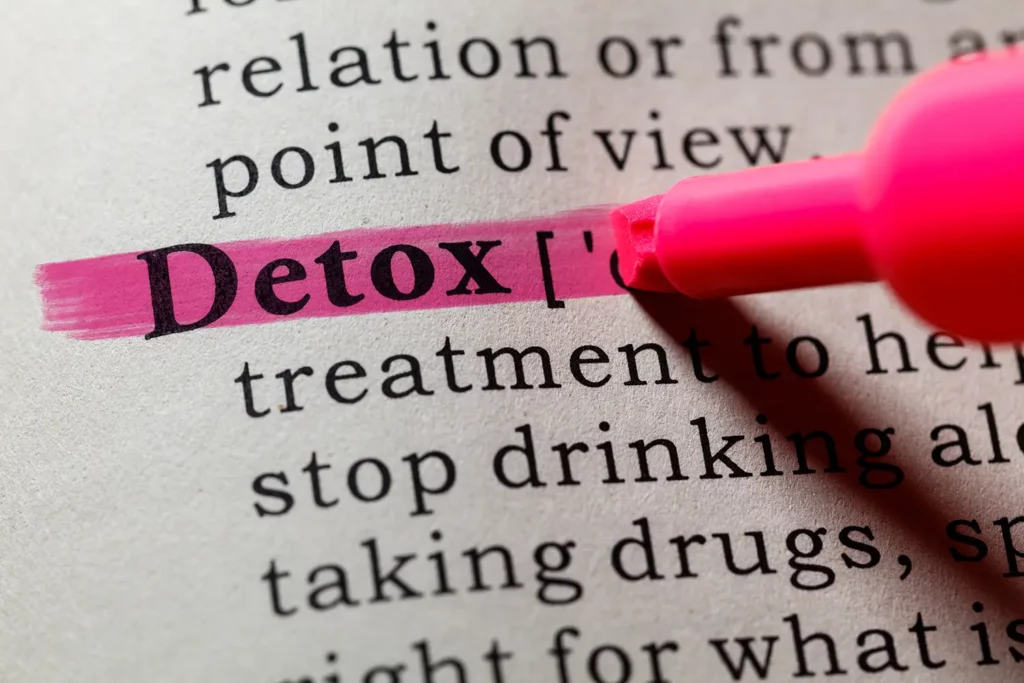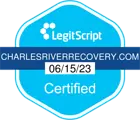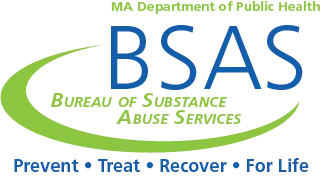The Amount of Time It Takes to Detox From Alcohol
Alcoholism, or alcohol use disorder (AUD), is a chronic disease defined by an individual’s addiction to alcohol. This compulsive need to consume alcohol takes control despite damaging effects to their physical and mental health.
Alcohol addiction can involve physical and psychological dependence. Psychological dependence is defined as having intense cravings for alcohol while a physical dependence is defined as going through withdrawal symptoms when you quit drinking.
What Are the Signs of Alcohol Use Disorder?
Not everyone exhibits the same signs when they develop AUD. However, there are some common signs that typically indicate you have a problem:
- Craving: Alcohol addiction usually comes with an intense craving to consume alcohol or a preoccupation with consuming alcohol.
- Lack of control: When you can no longer control the amount of alcohol you consume or you can no longer stop drinking, you probably have AUD.
- Tolerance: As you consume more and more alcohol, your body will develop a higher tolerance. Therefore, to feel the same level of intoxication, you will need to drink more. An increasing tolerance is a sign that you are becoming addicted to alcohol.
- Withdrawal symptoms: Individuals with AUD experience both physical and psychological symptoms when they stop drinking alcohol. Physical symptoms may include tremors while psychological symptoms may include irritability and anxiety.
- Neglecting work/family obligations: Individuals with alcoholism may start to neglect their work and family obligations.
- Continuing to drink despite negative consequences: People with AUD will continue to consume alcohol even when their physical and mental health takes a nosedive. In addition, legal, financial, and relationship issues may develop as a result of their drinking.
- More time spent on alcohol-related activities: Individuals with AUD will often spend a lot of their time drinking alcohol and recovering from its effects. As a result, they may stop engaging in their usual physical or social activities that don’t involve alcohol.
- Continued use despite dangerous behavior: Alcoholics may drive under the influence of alcohol, which can cause harm to others as well as themselves.
What Is Detoxification?
Detoxification, or detox, is the process the body goes through when it eliminates alcohol from its system. People with AUD will frequently experience withdrawal symptoms. The intensity of the withdrawal symptoms will depend on how severe the addiction is.
The Brain Before Detoxification
A steady diet of alcohol has a continuous sedating effect on your brain. As you increase the amounts of alcohol, you affect the brain’s neurotransmitters, which create slurred speech, balance problems, impaired memory, and more.
When your central nervous system is used to the continuing flow of alcohol, you can feel anxious and overstimulated without it. Why does this happen? While you were drinking, your body was working to keep your brain alert and counter the depressive effects of alcohol. With a sudden drop in the level of alcohol, the neurotransmitters remain keyed up until the body regains its normal chemistry.
How Many Days Does It Take to Detox From Alcohol?
The amount of time it takes for a person to completely detox from alcohol will vary from person to person. Factors that affect the time include the person’s weight, their overall health, the severity of their addiction, and any underlying medical conditions. The acute phase of an alcohol detox lasts anywhere from three to seven days.
First Few Days
You will typically experience mild withdrawal symptoms within the first six to 12 hours after your last drink. These symptoms start to get worse after the first 24 hours and may include tremors, sweating, nausea, and insomnia. These symptoms will peak around the third day.
If you suffer from severe alcoholism, you may experience delirium tremens (DT). This usually occurs 48-72 hours after the individual’s last alcohol drink. Those experiencing DT may have hallucinations and seizures. DT usually lasts about three to seven days.
Next Few Weeks
After the first withdrawal phase, which is the most acute, individuals will experience milder withdrawal symptoms, called PAWS (post-acute withdrawal symptoms). This can include symptoms such as anxiety, insomnia, and mood swings. These symptoms will decrease over time.
What Are the Withdrawal Symptoms When You Detox From Alcohol?
Because withdrawal symptoms can be intense — and life-threatening — it is important to detox in a rehab facility or medical facility with the help of health professionals. Here are some common withdrawal symptoms:
- Profuse sweating as the body eliminates toxins
- Shaking or trembling of the hands
- Irritability and anxiety
- Difficulty falling asleep or staying asleep
- Nausea and vomitings
- Mild to severe headaches and sensitivity to sound and light
- Increased heart rate
- Higher blood pressure
- Depression
- Difficulty concentrating
- Auditory or visual hallucinations
- Seizures
The Stages of Treatment for Alcohol Detoxification
When you enter a rehab facility or recovery center, you will need to complete several stages of treatment for alcohol detoxification. These stages are necessary to ensure your safety. You will be under medical supervision, and health professionals will monitor you at every stage in order to manage your withdrawal symptoms. Here are the typical stages of detox.
Evaluation
Medical professionals will ask you to fill out some forms to determine your overall health status. It’s important for them to understand the severity of your alcohol addiction and any underlying mental disorders. The evaluation stage helps health professionals customize a detoxification program that is suited to your needs.
Stabilization
Once the rehab center evaluates you, the detox process can begin. The staff will monitor your symptoms to determine whether you need medications to help ease you off alcohol safely. The staff will also monitor your hydration levels and your nutritional needs. As withdrawal symptoms include elevated heart rate and high blood pressure, healthcare professionals need to monitor your vital signs as well.
Early Abstinence
During the early abstinence stage, constant monitoring is essential. Besides providing hydration and nutrition, health professionals may provide you with medications, such as benzodiazepines, to reduce the risk of health-related complications.
Maintenance and Emotional Support
The goal of the maintenance stage is to maintain your abstinence and prevent a relapse. During this stage, you will be receiving emotional support and therapy from the rehab facility. Emotional support can help address some of the underlying reasons you may have turned to alcohol as a coping mechanism. Counseling and therapy often go hand in hand with the maintenance stage.
Although these stages take place in the first few weeks, the detox process is not enough to ensure long-term recovery. After the detox process, you should participate in treatment programs that can treat the root causes of addiction. These programs can also help you develop ways to maintain your sobriety.
The Different Types of Treatment Programs for Alcoholism
After your detoxification, you should participate in a treatment program. These programs are often intensive at first and then taper down as you build years of sobriety. Here are some common types of treatment programs for individuals with AUD.
Inpatient Residential Treatment
Once clients have gone through a detox program, they can opt for inpatient residential treatment. Inpatient programs require that clients stay at the treatment facility for a set period of time. This may be a few weeks to a few months. Inpatient programs are usually designed for individuals who have severe AUD. Besides medical detoxification, there are individual therapy, counseling, and group therapy. Inpatient programs are highly structured, and they are usually designed for clients who need constant monitoring.
Outpatient Treatment
Outpatient programs allow individuals to live at home and continue with their work, school, or family obligations. Outpatient programs are typically not as intense or structured as inpatient programs. However, clients will have a few hours of therapy a week. These programs also provide individual therapy, counseling, and group therapy.
Intensive Outpatient Programs (IOP)
Some outpatient treatment programs aren’t structured enough for newly recovering alcoholics. To fill the gap between outpatient programs and inpatient programs, there are intensive outpatient programs. These provide a more structured schedule than outpatient programs. These programs are suitable for individuals who need an intense, structured environment but do not need 24-hour monitoring.
Partial Hospitalization Programs (PHP)
Another option for those in recovery is a partial hospitalization program. Individuals can attend treatment sessions during the day and return home at night. The treatment sessions are usually intense and require that individuals participate five days a week. PHPs offer therapy, medical monitoring, and medication management.
Cognitive Behavioral Therapy (CBT)
Cognitive behavioral therapy helps individuals identify and change their harmful thoughts and behaviors. The therapy is also designed to help them build coping skills and address the reasons for their alcohol use disorder.
Motivational Enhancement Therapy (MET)
Motivational enhancement therapy is designed to motivate individuals to change their drinking behavior through goal-setting and structured discussions.
Medication Assisted Treatment (MAT)
For heavy drinkers, individual therapy may not be enough to prevent a relapse. In this case, medications can be used to help with their recovery. Some medications, such as benzodiazepines, acamprosate, and disulfiram, can help reduce cravings or even cause adverse reactions when alcohol is consumed.
12-Step Programs
Alongside individual therapy, 12-step programs such as Alcoholics Anonymous (AA) are a great way for recovering alcoholics to find peer support. By sharing their experiences with a group, individuals in recovery can listen to the experiences of others and be part of a supportive community.
Follow-Up Programs
When you suffer from an addiction to alcohol, a detox program or short-term treatment program may not be enough to stop the cravings. Many recovery centers also offer follow-up programs to help their clients maintain their sobriety. These include relapse prevention and aftercare support.
Both relapse prevention and aftercare support are designed to teach techniques and strategies to reduce or even eliminate alcohol dependence. Some of the techniques you will learn are:
- Identify triggers: Clients are taught to identify what triggers their cravings. It could be a place, a person, an emotion, or a specific situation. Other triggers could be stress or negative emotions.
- Develop coping mechanisms: Once clients identify their triggers, they will need to find specific techniques or activities that can help them cope. These may include yoga, meditation, or a variety of physical exercises. Continuing with individual therapy can also be helpful.
- Build a support system: An important part of staying sober is building a network of sober friends. This may occur through AA group meetings, professional counseling, or a group of friends who have had similar experiences.
- Change your lifestyle: Eating healthier, sleeping better, and engaging in healthy social activities can help you maintain your sobriety. Changing your lifestyle also means avoiding situations and places where alcohol is present.
- Develop a relapse prevention plan: Roughly 40% to 60% of alcoholics relapse within a year of treatment. Knowing this statistic, it’s important to develop a relapse prevention plan with your support group or counselor. The plan should outline what steps you will take in case of a relapse and how you will regain your sobriety.
Charles River Recovery
At Charles River Recovery, we provide alcohol detox in a professional setting. We also offer comprehensive treatment programs and comfortable accommodations at our Massachusetts facility. Our highly experienced staff is made up of board-certified addiction psychiatrists, addiction nurses, and therapists. Our alcohol use disorder treatment programs are long term because we understand that recovery is a lifelong process. For this reason, we also offer family therapy, relapse prevention, holistic addiction treatment, and alumni programs. If you are ready to make a change in your life, contact Charles River Recovery today.






